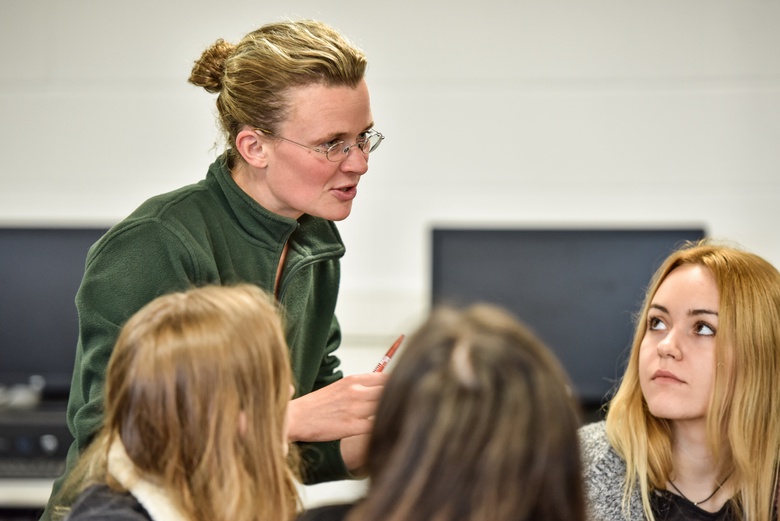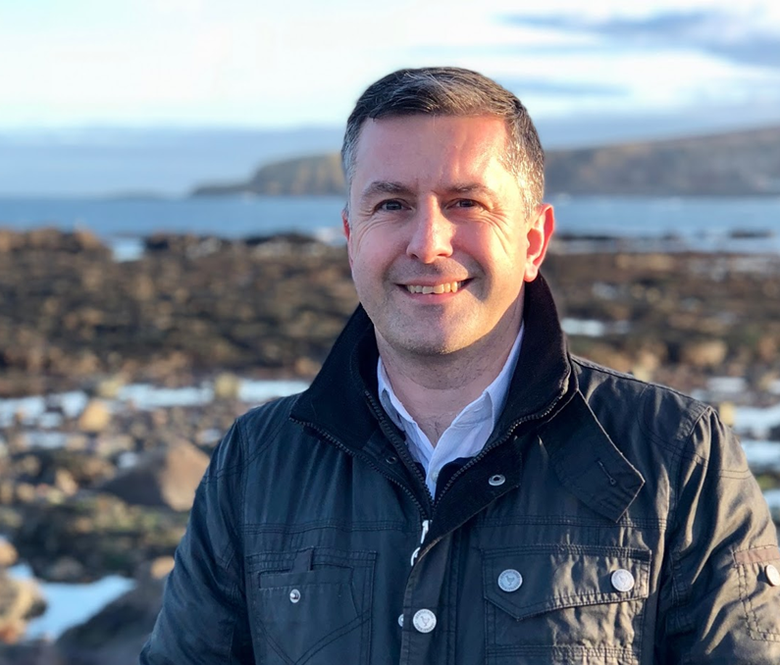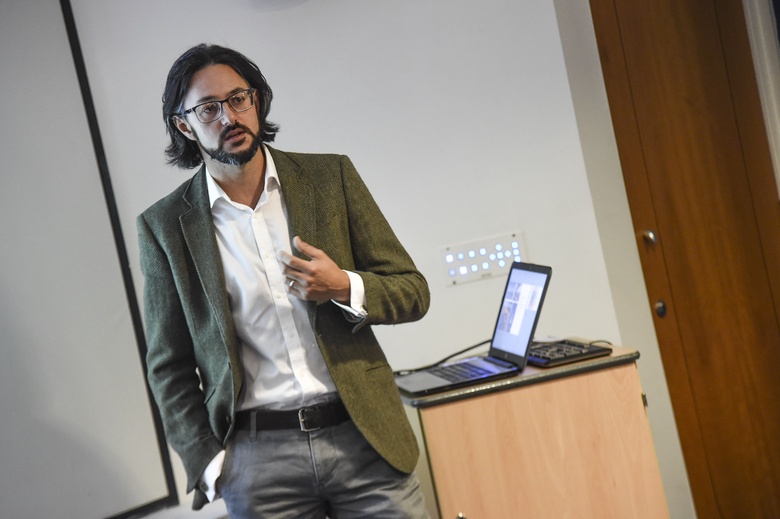Flipped Classroom
Dr Mirjam-Van den Bos, School of Psychology

Number of students affected: 250
During which half session did this take place: 2nd half session
Context: In 2015 I completed the PGcert in HE, which set my mind on fire with enthusiasm. I learned to reflect on my teaching, and discovered I was too focused on 'what I did', rather than what students were doing. This was particularly relevant in my second year course 'Personality'. By this point, students are familiar with the main topics in Psychology, so I wanted my lectures to go beyond simply 'adding to' existing knowledge. I wanted to create a learning environment in which my students could practice discussion and debate, and learn by actively 'wrestling' with theories and perspectives.
Activity: To this end I introduced the Flipped Classroom in 2015 (and it has been running ever since). I ask students to watch my pre-recorded videos (purpose-built for the Flipped Classroom, in 20-minute chunks) and complete several brief exercises, before coming to the timetabled session. In this timetabled session, instead of me 'delivering' a lecture, collaborative activities encourage students to apply the material from the videos and solve problems. A brief plenary session follows each activity, to ensure understanding and to encourage discussion across the entire lecture theatre.
How did you evaluate the effectiveness of the activity? Dr. Darren Comber and I investigated student perceptions using qualitative interviews. Initially, the FC was not a success, evidenced by poor attendance (N=30/200). This was mainly due to not explaining the rationale, and pre-class exercises being seen as adding to an already full curriculum. The data enabled me to make changes: I explained what students could expect, and importantly, why we believe FCs are valuable environments for learning. This explanation made a large difference to the popularity of the FC, with 150> students now attending the sessions and end-of-course forms indicating that students benefit in terms of engagement and understanding.
Impact of the activity: I share my experiences of large-group interactive teaching at the University's PLTHE and 2-day Induction courses, which each run twice a year. The effects of these meetings have been widespread: since 2016 colleagues from Divinity, Mathematical Biology, Epidemiology, Medical Sciences, and Natural and Computing Sciences have contacted me for advice on how to make their own teaching more interactive. Within our own School, the FC is taken up by other courses as a way of making the most of the face-to-face time with guest lecturers from applied fields, who feel much more comfortable talking with rather than to students.
Dissemination: I share my experiences of large-group interactive teaching at the University's PLTHE and 2-day Induction courses, which each run twice a year. The effects of these meetings have been widespread: since 2016 colleagues from Divinity, Mathematical Biology, Epidemiology, Medical Sciences, and Natural and Computing Sciences have contacted me for advice on how to make their own teaching more interactive. Within our own School, the FC is taken up by other courses as a way of making the most of the face-to-face time with guest lecturers from applied fields, who feel much more comfortable talking with rather than to students.
General Practice Live
Dr John McKeown, School of Medicine, Medical Sciences & Nutrition

Number of students affected: 170
During which half session did this take place: 2nd half session
Context: There are significant national recruitment issues in General Practice (GP), which present challenges for capacity in clinical teaching. In addition, there is a perception that GP is not an exciting or challenging speciality. We aimed to challenge this perception, building on recently published findings to develop and implement a teaching model that links the clinical and non-clinical learning environments in a unique manner. We utilised the new Digitally Enhanced Learning Space (DELS), and designed and delivered new teaching informed by evidence to facilitate career choices in GP, and addressed the requests of our students for more clinical teaching.
Activity: We delivered the first live teaching session direct from a GP surgery to students situated in the DELS room. Utilising software (Panopto) we transformed the teaching on GP consultations and for the first time made this accessible to year 1 students. With a GP facilitating discussion in DELS, we taught 40 students at a time, when only 3 or 4 students might have been taught in a traditional manner. This was a unique and novel bridge between the GP clinical setting and the University teaching setting, allowing facilitated discussion in student groups that was not previously possible.
How did you evaluate the effectiveness of the activity? The session was universally well received by the students. Written and numerical feedback demonstrated that 100% would recommend it to others with also 100% reporting it as 'interesting' and 'innovative'. It was rated as giving an excellent insight into the work performed during a GP consultation. From two small groups of 10, the session has been developed into teaching larger groups of 40 students. From this January it will be delivered to every Year 1 medical student in Year 1, with a proposal to deliver in later years of the curriculum as well.
Impact of the activity: Free text comments from students stated that they wished it to be integrated into the curriculum. This has been achieved with minimal requirement for increased capacity in GP clinical teaching capacity. We are progressing from a single GP surgery streaming video to multiple surgeries in different contexts. This teaching technique has the potential for demonstrating the extremely varied work that takes place daily across Scotland in rural and urban GP. The session attracted significant coverage in both local and national media. The style of teaching was picked up on social media, including by the Chief Medical Officer Dr Catherine Calderwood.
Dissemination: This technique has been presented at multiple medical cross-speciality local and national meetings and at DELS room promotional meetings. We hosted multiple workshops including the Scottish Medical Education Conference in Edinburgh and presented a poster at the national RCGP conference in Liverpool. The developers received a highly commended teaching recognition at the recent RCGP conference in Glasgow. The session was discussed recently at the national GP Heads of Teaching meeting in Warwick receiving significant interest. The proposed RCGP curriculum (2018) includes the suggested technique of "Viewing remotely transmitted live surgeries in groups", suggesting that this development has been noted nationally.
Creating Environmental Leaders in the MSc in Environmental Partnership Management
Dr Tavis Potts, School of Geosciences

Number of students affected: 17 MSc students
Context: The MSc in Environmental Partnership Management (EPM), through its flagship course GG5911, the Partnership Project, seeks to create the skills and confidence in graduates to become leaders in the global green economy movement. We seek to develop and embed the confidence and skills for students to become sustainability leaders in their communities, in businesses and in government and to develop green entrepreneurial skills that address major environmental problems. The Partnership Project is the stepping stone to achieving this, by placing students in real world roles addressing complex sustainability problems, developing their skills and improving their networks.
Activity: I negotiate with local, national and international organisations to identify pragmatic projects that implement the UN sustainable development goals. Examples include local community organisations (Huntly Community Partnership: developing a low carbon strategy); local government (Aberdeen Council sustainable food strategy; Shire Council: Sustainable NE 250 tourism); UK Govt Defra (coordinating UK marine partnerships) and international organisations (e.g. UN Institute Training and Research (UNITAR) developing a UN green education strategy). From September to February each year I negotiate projects (15 in 2018/19) for students ensuring that the placement is robust, skills based and develops the student's environmental leadership and innovation capacity.
How did you evaluate the effectiveness of the activity? Student feedback for GG5519 rates it as a highlight of the MSc. Graduate feedback (for example: https://www.youtube.com/watch?v=17THH6lcjy4) describes how the Partnership Project improves confidence, skills and employability. Feedback from our students highlights this element, for example "...in the Partnership Project I gained practical project management skills and in-depth knowledge of sustainable development" - L. Robertson). We have evidence that employers are preferencing EPM graduates due the mix of practical skills and sustainability expertise developed by the degree. I am continuing to develop and grow the project offerings with Scottish, UK and international organisations and in-line with increasing student enrolments.
Impact of the activity: The key impact is securing employment for graduates in the green economy - 100% of our graduates from 2015 have secured employment. Several graduates have been employed with their project host, e.g. 2 students in Aberdeenshire Council in climate and circular economy roles; 1 in the Aberdeen Sustainable Food Cities program; and 1 leading the NE Scotland Coastal Litter project. We have developed several innovative extra-curricular opportunities, graduates are automatically affiliated with the Scottish Innovative Student Awards (https://www.sie.ac.uk/sisa/) as level 1 future thinkers; we are exploring Star Award accreditation and have registered with the Bright Green Business network.
Dissemination: Our dissemination channels are our project partners, local and international networks. Recently I attended the 2nd Green Economy Learning Forum in Paris (http://un-page.org/2nd-global-forum-green-economy-learning) where I showcased the success of the MSc and the Partnership Projects. The outcomes were requests for new placements, UN level contacts (e.g. Green Growth Knowledge Platform & UNITAR) and involvement in a new UNITAR (UN) project on devising evaluation methods for green economy learning. In 2019, in line with our increased admission on the MSc, we intend to run a stakeholder / student / staff networking event highlighting the outcomes from our 17 Partnership Projects.
